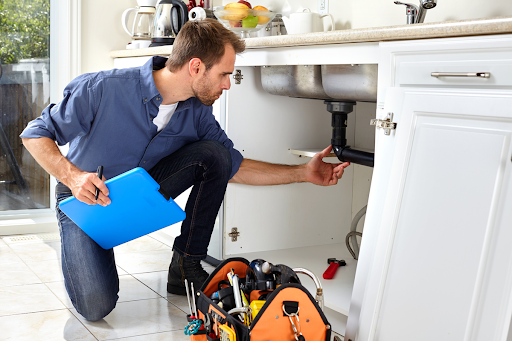Your home’s plumbing system is a complex network of fixtures, fittings, pipes, and appliances. As a result, one unexpected issue can quickly lead to a wide range of plumbing troubles.
The excellent news is that a plumbing inspection can help you locate, diagnose, and fix these issues promptly. However, you may want to know what is involved in a plumbing inspection before scheduling one. Here are a few tasks a plumber may perform during an inspection:
Testing Your Plumbing Fixtures
If you’re unsure what to expect during a whole-house plumbing inspection, it’s best to start with your home’s plumbing fixtures. Plumbing issues can appear anywhere—including your fixtures. Some of the most common fixtures include faucets, toilets, sinks, and showers.
A plumber will check that these fixtures are in working order during an inspection. Your family relies on these vital components of your plumbing system every day when washing their hands, taking a shower, or preparing a meal in the kitchen.
Investigating for Leaky Pipes
Although your water and sewer lines are designed to last a long time, these pipes can become damaged or worn. As a result, leaks and other plumbing issues can occur that lead to unwanted water damage.
With state-of-the-art cameras, plumbers will inspect your home’s sink, shower, and sewer drains. These cameras make it easy to accurately diagnose and fix the drain or sewer pipe issue at hand. The plumber may recommend a Toronto water main repair, sewer line replacement, or similar solution.
Examining Your Shutoff Valves
What is involved in a plumbing inspection can vary, but you can almost guarantee that a plumber will examine and test your shutoff valves. Your home is equipped with shutoff valves that connect the water supply to various plumbing fixtures throughout your home. These valves allow you to turn off the water to different plumbing fixtures in an emergency. It’s crucial to ensure that these valves are working correctly.
Checking Your Water Pressure
Your home’s water pressure has to strike a perfect balance. High water pressure can damage your pipes, while low water pressure can make it difficult to use faucets, wash the dishes, and clean your clothes properly.
When discussing what to expect during a whole-house plumbing inspection, it’s impossible to overlook the importance of water pressure. Proper water pressure can help you avoid several plumbing problems, including leaks.
Inspecting Your Water Heater
When we think of our water heaters, we usually only consider the hot water they provide. However, it’s vital to remember that our water heaters should be inspected regularly to ensure that they are safe and working properly.
What is involved in a plumbing inspection regarding water heaters? Your plumber will likely check the water heater tank for corrosion, sediment buildup, and proper ventilation.
Evaluating Your Sump Pump
Overall, what to expect during a whole-house plumbing inspection can vary depending on the systems installed in your home. For instance, if you have a sump pump, a plumber will likely evaluate and test the system’s operation.
Sump pumps are responsible for keeping your basement or crawlspace dry during heavy rains. A routine inspection can provide you with much-needed peace of mind in the face of storms and potential flooding.
Schedule an Inspection With Same Day Plumbing
It’s common to overlook our plumbing systems until a problem appears out of nowhere. Fortunately, it’s easy to prevent costly issues with a professional plumbing inspection.
Now that you know what is involved in a plumbing inspection, turn to Same Day Plumbing for plumbing services you can trust. We provide everything from kitchen sink installation services to whole-home plumbing inspections. Contact us today for more information about what to expect during a whole-house plumbing inspection!


